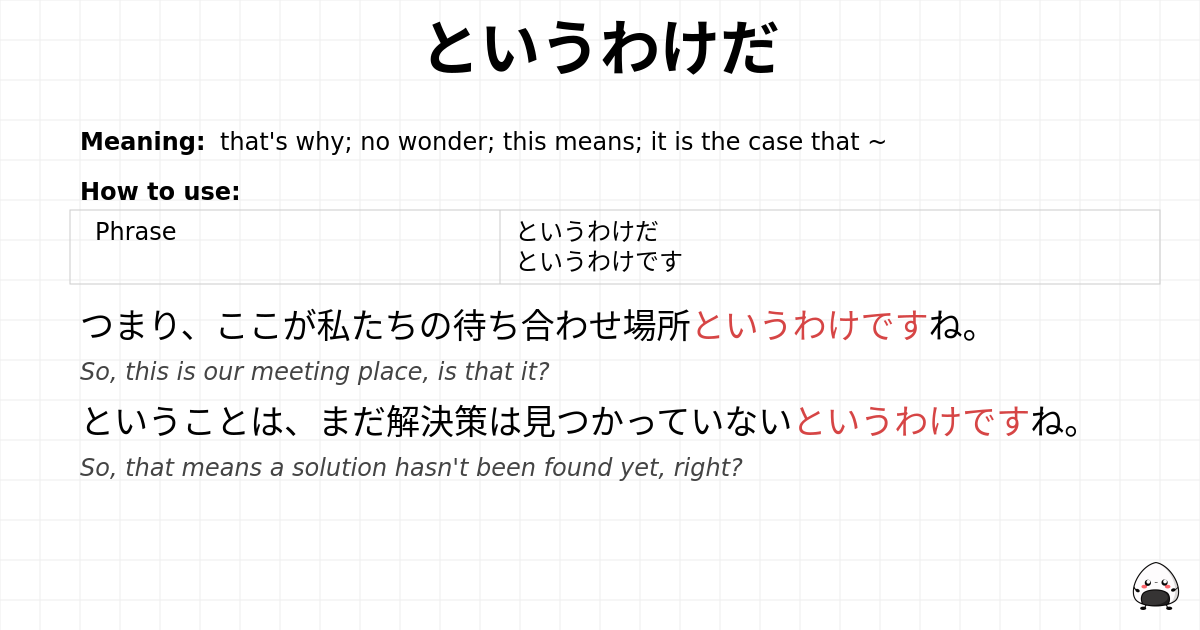つまり、ここが私たちの待ち合わせ場所というわけですね。
つまり、ここがわたしたちのまちあわせばしょというわけですね。
tsumari, koko ga watashitachi no machiawase basho to iu wake desu ne.
So, this is our meeting place, is that it?
ということは、まだ解決策は見つかっていないというわけですね。
ということは、まだかいけつさくはみつかっていないというわけですね。
to iu koto wa, mada kaiketsusaku wa mitsukatte inai to iu wake desu ne.
So, that means a solution hasn't been found yet, right?
結局、君が全部支払うというわけだね。
けっきょく、きみがぜんぶしはらうというわけだね。
kekkyoku, kimi ga zenbu shiharau to iu wake da ne.
In the end, it means you're paying for everything, huh?
つまり、彼は最初から知っていたというわけだ。
つまり、かれはさいしょからしっていたというわけだ。
tsumari, kare wa saisho kara shitte ita to iu wake da.
In other words, he knew from the beginning.
だから、君がこのプロジェクトのリーダーになるというわけだね。
だから、きみがこのプロジェクトのリーダーになるというわけだね。
dakara, kimi ga kono purojekuto no riidaa ni naru to iu wake da ne.
So, that means you're going to be the leader of this project.
A:今週は忙しくて、全然寝てないんだ。
B:じゃあ、週末はゆっくり休むというわけですね。
A:こんしゅうはいそがしくて、ぜんぜんねてないんだ。B:じゃあ、しゅうまつはゆっくりやすむというわけですね。
A: konshuu wa isogashikute, zenzen nete nainda. B: jaa, shuumatsu wa yukkuri yasumu to iu wake desu ne.
A: I've been so busy this week, I haven't slept at all. B: So, that means you'll be resting well on the weekend, right?
A:最近、キャッシュレス決済を使う人が増えているらしいよ。
B:じゃあ、現金を持ち歩かない人が増えているというわけですね。
A:さいきん、キャッシュレスけっさいをつかうひとがふえているらしいよ。B:じゃあ、げんきんをもちあるかないひとがふえているというわけですね。
A: saikin, kyasshuresu kessai o tsukau hito ga fuete iru rashii yo. B: jaa, genkin o mochiarukanai hito ga fuete iru to iu wake desu ne.
A: It seems the number of people using cashless payments is increasing recently. B: So, that means the number of people not carrying cash is increasing.
